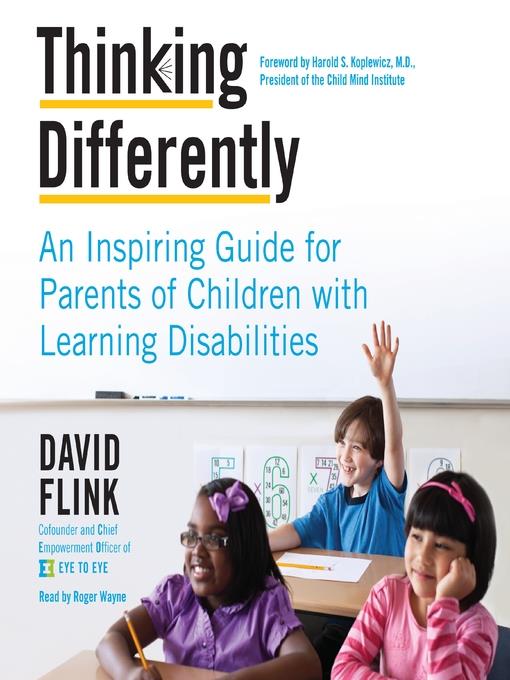
Thinking Differently
An Inspiring Guide for Parents of Children with Learning Disabilities
- اطلاعات
- نقد و بررسی
- دیدگاه کاربران
نقد و بررسی

July 21, 2014
In 1998, then college student Flink established the nonprofit Eye to Eye, which pairs LD/ADHD college student mentors with younger mentees (who have similar disabilities) to work on art projects. In this impressive guide, Flink uses lessons from leading Eye to Eye, as well as his personal struggles with dyslexia and ADHD, to advise parents, older children, and teens. The first step for a parent who suspects that his or her child may have dyslexia, ADHD, or another learning disability is to have the child evaluated. Receiving an LD and/or ADHD diagnosis may be a relief since it provides an explanation for why some learning can be so difficult. Throughout, Flink stresses that “learning disabilities and ADHD have nothing to do with native intelligence.” In addition, he devotes a full chapter to discussing laws that mandate accommodation for students with LD/ADHD, and explains how to take advantage of these laws. Other chapters build on this foundation of diagnosis and securing accommodations, to discuss finding allies, becoming an advocate, and joining the larger community of people with LD/ADHD. In this inspiring book, Flink ends with a call for all with LD/ADHD to accept their condition, and share it with others so that the world will eventually accept all types of learners equally.

September 1, 2014
How do you help a child who has been diagnosed with a learning disability, dyslexia, and/or ADD/ADHD to be successful in school and socially? Flink, cofounder of the learning disability mentoring organization Eye to Eye, has written a frank and comprehensive "how-to" guide for parents who are struggling to help children become confident, independent, and resourceful individuals despite, and, often because of, the different way their brain works. When Flink was diagnosed with dyslexia and ADHD as a child, he and his parents were pioneers in navigating special education services and accommodations for those with learning disabilities. Here he covers topics such as determining if there is a learning problem; the basics of learning disabilities and attention issues; how and when to step up and take action; testing and what the results reveal; how to discover the strengths and weakness of a child's brain; and what accommodations might be useful and effective. Self-confidence is a key to success for those who process information differently and the author discusses how best to bolster a child's self-image through finding allies and by being an advocate, as well as teaching children to advocate for themselves. VERDICT Flink imparts clear insights and immediate solutions for parents, educators, and professionals working with children with learning disabilities.--Lisa Jordan, Johnson Cty. Lib., Gardner, KS
Copyright 2014 Library Journal, LLC Used with permission.




دیدگاه کاربران